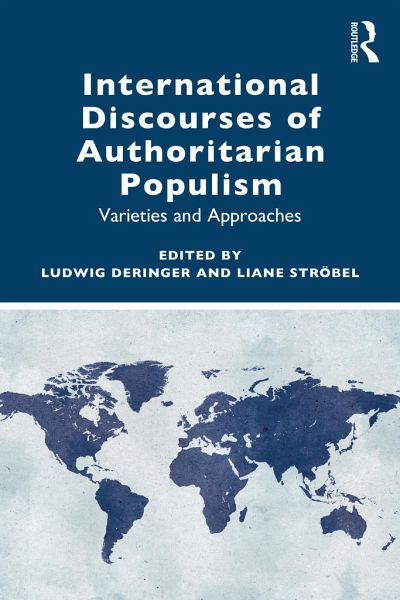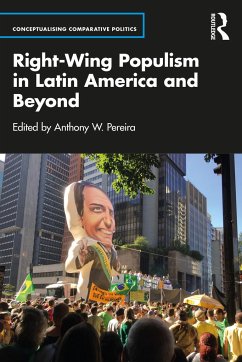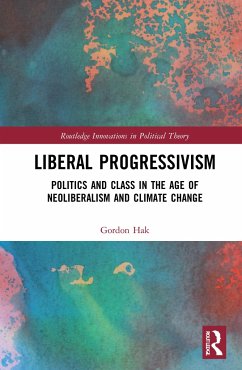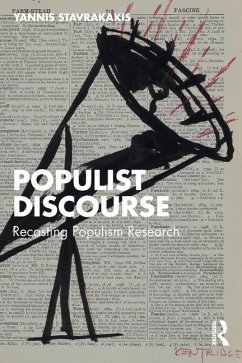
International Discourses of Authoritarian Populism
Varieties and Approaches
Herausgegeben: Deringer, Ludwig; Ströbel, Liane

PAYBACK Punkte
21 °P sammeln!
International Discourses of Authoritarian Populism provides 15 cutting-edge chapters probing into the diversity of present-day populist discourse from across the world.Not adhering to any particular school, the volume explores populism from a variety of disciplines and perspectives, with contributions characterized by heuristic openness as called for by the manifold manifestations of populism. The chapters balance theoretical and empirical studies, as well as quantitative and qualitative surveys and case studies, to offer readings on historical and new types of populism, and the politicians as...
International Discourses of Authoritarian Populism provides 15 cutting-edge chapters probing into the diversity of present-day populist discourse from across the world.
Not adhering to any particular school, the volume explores populism from a variety of disciplines and perspectives, with contributions characterized by heuristic openness as called for by the manifold manifestations of populism. The chapters balance theoretical and empirical studies, as well as quantitative and qualitative surveys and case studies, to offer readings on historical and new types of populism, and the politicians associated with these variates. Authors draw on a variety of print, digital, textual, and visual source materials to provide a close examination of the phenomena interconnected with populism including separatism (Catalexit), human rights and legal issues, debate rhetoric, and journalism, with many authors writing as insiders about the situation within their own country.
Through its multi-disciplinarity, International Discourses of Authoritarian Populism provides fresh insights into the existing and potential dangers of populism, and a basis for further critical assessment and discussion. It will be a key resource for scholars and students across a range of disciplines, including sociology, political science, linguistics, media and communication studies, literary studies, and history. Moreover, it will be of special interest to professionals who deal with both national and international issues of populism.
Not adhering to any particular school, the volume explores populism from a variety of disciplines and perspectives, with contributions characterized by heuristic openness as called for by the manifold manifestations of populism. The chapters balance theoretical and empirical studies, as well as quantitative and qualitative surveys and case studies, to offer readings on historical and new types of populism, and the politicians associated with these variates. Authors draw on a variety of print, digital, textual, and visual source materials to provide a close examination of the phenomena interconnected with populism including separatism (Catalexit), human rights and legal issues, debate rhetoric, and journalism, with many authors writing as insiders about the situation within their own country.
Through its multi-disciplinarity, International Discourses of Authoritarian Populism provides fresh insights into the existing and potential dangers of populism, and a basis for further critical assessment and discussion. It will be a key resource for scholars and students across a range of disciplines, including sociology, political science, linguistics, media and communication studies, literary studies, and history. Moreover, it will be of special interest to professionals who deal with both national and international issues of populism.














